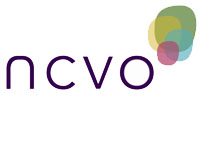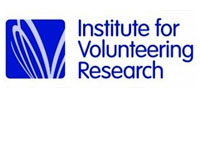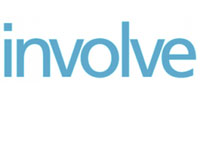What is Pathways through Participation?
Pathways through Participation is a two-and-a-half year (April 2009 - Nov 2011) qualitative research project that aimed to improve our understanding of how and why people participate, how their involvement changes over time, and what pathways, if any, exist between different activities.
Who conducted the project?
The project was funded by the Big Lottery Fund and led by the National Council for Voluntary Organisations (NCVO) in partnership with the Institute for Volunteering Research (IVR) and Involve.
 The National Council for Voluntary Organisations is the largest umbrella body for the voluntary and community sector in England. NCVO’s research team conducts research on generic issues of importance to the voluntary and community sector, including citizen engagement and voluntary action.
The National Council for Voluntary Organisations is the largest umbrella body for the voluntary and community sector in England. NCVO’s research team conducts research on generic issues of importance to the voluntary and community sector, including citizen engagement and voluntary action.
 The Institute for Volunteering Research is a research consultancy agency specialising in volunteering. IVR is an initiative of Volunteering England and aims to develop knowledge and understanding of volunteering in a way that is relevant to practitioners and policy makers.
The Institute for Volunteering Research is a research consultancy agency specialising in volunteering. IVR is an initiative of Volunteering England and aims to develop knowledge and understanding of volunteering in a way that is relevant to practitioners and policy makers.
 Involve are experts in public engagement, participation and dialogue. Involve carry out research, provide support and deliver training to inspire citizens, communities and institutions to run and take part in high-quality public participation processes, consultations and community engagement. Involve believe passionately in a democracy where citizens are empowered to take and influence the decisions that affect their lives.
Involve are experts in public engagement, participation and dialogue. Involve carry out research, provide support and deliver training to inspire citizens, communities and institutions to run and take part in high-quality public participation processes, consultations and community engagement. Involve believe passionately in a democracy where citizens are empowered to take and influence the decisions that affect their lives.
 The research was funded by the Big Lottery Fund through its Research Programme, which aims to influence local and national policy and practice by funding voluntary and community organisations to produce and disseminate evidence-based knowledge. In the longer term the programme, through producing sound evidence, aims to help develop better services and support for beneficiaries.
The research was funded by the Big Lottery Fund through its Research Programme, which aims to influence local and national policy and practice by funding voluntary and community organisations to produce and disseminate evidence-based knowledge. In the longer term the programme, through producing sound evidence, aims to help develop better services and support for beneficiaries.
The Big Lottery Fund distributes half of all National Lottery good cause funding across the UK. The Fund aims to enable others to make real improvements to the lives of disadvantaged people and the wellbeing of communities, through fair and open funding of people, projects and programmes.
Find out about the team and the advisory group.
What were the project’s research questions?
The research sought to answer the following research questions:
- How and why does participation begin and continue?
- Can trends and patterns of participation (in terms of activity and intensity) be identified over time?
- What connections, if any, are there between different forms of participation and what triggers movement between them?
- How can public service providers, policy-makers and voluntary and community organisations enable and encourage different individuals and communities to participate?
What led to the research?
The project emerged from a common desire across our three organisations to create a fuller picture of how people participate over their lifetimes. It builds on work completed at NCVO on active citizenship, adds to IVR’s research into volunteering by exploring it in relation to other forms of participation, and extends Involve’s research and practice in empowering citizens to take and influence the decisions that affect their lives.
How does the research add to the existing evidence base?
Previous research has tended to look at participation within a particular type of activity (such as volunteering) or issue (such as housing), usually from an institutional or organisational perspective and at just a snapshot in time. This project builds on the existing evidence base by taking a much broader definition of participation, focusing on people’s experience of participation over the course of their lives, and looking at the connections between different participation activities. By adopting this approach, the project was able to explore the complexities and dynamics of how participation works in practice.
What approach did the project take?
Our approach placed the individual at the heart of the research: in total, we conducted 101 in-depth interviews with people, who reflected on their life story of participation. However, we recognised that participation needs to be looked at in its wider context because people do not operate in a vacuum; their participation is situated in time, place and space. We therefore chose three different areas from around England in which to carry out the research to provide a range of contexts for participation, and enable us to interview a broad range of people. The three fieldwork areas were Leeds (inner city), the London Borough of Enfield (suburban) and Suffolk (rural).
National and local stakeholder engagement was embedded in the project to help guide the research design and to identify links to local and national policy-makers and practitioners. A national Advisory Group and Local Stakeholder Groups were established in each of the three fieldwork areas to provide this role. In each fieldwork area, we ran three mapping workshops at the start of the project to identify sites of participation where we could find some of our interviewees, and also organised participatory workshops to discuss the local implications of the emerging research findings.
 Subscribe to our project updates
Subscribe to our project updates